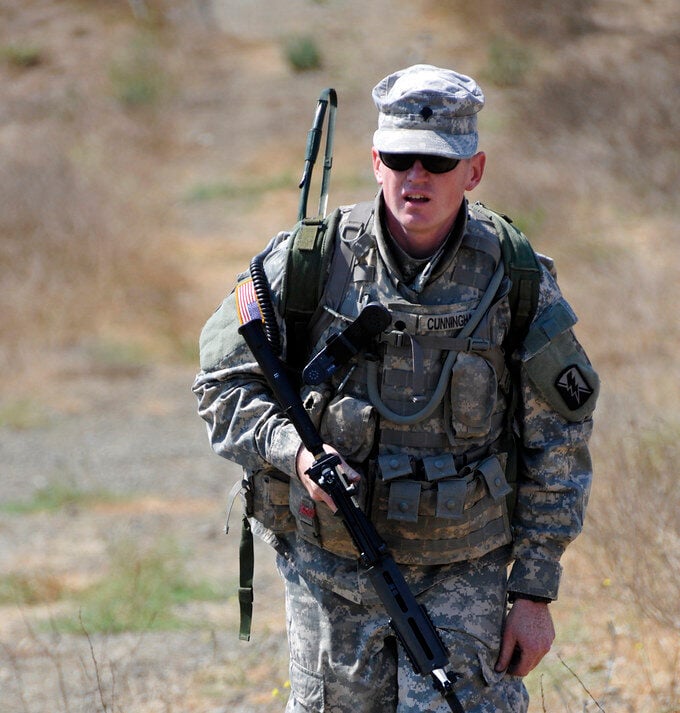Key Takeaways
• Appeals court halts National Guard Chicago deployment
• Court allows Guard to be federalized while case proceeds
• Mixed ruling gives Trump partial win and partial loss
• Legal fight will continue in the coming weeks
In a sharp decision, the Seventh Circuit Court of Appeals blocked the Trump administration from sending troops to guard Chicago streets. However, the court did allow the National Guard Chicago forces to become federal troops. This mixed ruling leaves both sides claiming small victories.
Why National Guard Chicago Deployment Was Blocked
First, the court focused on state authority. It decided that Illinois could set its own rules for guard troops. Then, the judges ruled that the president overstepped by imposing troops against state wishes. As a result, the plan to deploy the National Guard Chicago units on city streets cannot move forward—for now. Meanwhile, the court’s permission to federalize the forces ensures they remain under national control.
Background of the Case
The conflict began when President Trump sought to send National Guard Chicago troops to combat rising crime. State leaders in Illinois resisted. They argued that federalizing the guard would ignore local laws and budgets. Last week, Judge Thomas Perry sided with Illinois and blocked the deployment. The Trump team swiftly asked the appeals court for a pause. Finally, on Saturday, the Seventh Circuit delivered its split ruling.
Details of the Ruling
The three-judge panel issued a one-page order. They refused to let the administration deploy guard troops immediately. Yet, they granted the administration permission to federalize those same guards while the legal fight continues. One judge supported the state’s view on deployment. Another judge joined the majority in allowing federalization. This twist mirrors a similar decision by another appeals court earlier this month.
Impact on Chicago
Residents and officials had mixed reactions. Some city leaders praised the block on guard deployment as a win for local control. Others worried about losing crucial support amid a crime spike. Moreover, community groups called for more investment in social programs rather than a military presence. Still, law enforcement agencies expressed relief that more personnel might arrive soon in federal status.
What Happens Next
Now both sides must prepare for full oral arguments. The appeals court will hear detailed presentations soon. In addition, Illinois can argue why only the state may approve guard deployments. Meanwhile, the federal government will push to prove its power to step in during emergencies. Finally, the judges must decide if the initial ban or the federalization plan holds.
Lessons for Other States
This case could set a national precedent. Firstly, it highlights the tug-of-war over state versus federal power. Secondly, it shows how quickly political disputes can land in court. Thirdly, it signals that future presidents might face limits when sending troops to cities. Lastly, it warns state leaders to weigh local needs against national demands.
Beyond Chicago, states are watching closely. If courts keep limiting federal control, governors may gain more say over local troops. On the other hand, the federal government could seek broader authority under emergency clauses. Either way, the balance between state and federal powers may shift in the coming years.
Community Views
Many Chicago residents feel anxious. They want safer streets but worry about more armed troops. Civil rights advocates warn of potential clashes between citizens and guardsmen. Conversely, some neighbors call for any help that could curb violence. In this light, both sides agree on one thing: Chicago needs real solutions to crime and safety.
A Deeper Look at Federalization
Federalizing the National Guard Chicago units means the troops answer to the president rather than the governor. This status can speed up their deployment in emergencies. However, the troops still follow certain state rules on training and conduct. Thus, federalization offers a compromise. It keeps troops ready for action while respecting some state frameworks.
Legal Strategies Moving Forward
Lawyers for Illinois will likely stress state sovereignty and financial impacts. They may argue that forced deployment imposes unwanted costs on local budgets. Meanwhile, the administration will lean on constitutional powers to protect Americans. Both sides can introduce expert testimony on public safety and budget effects. Then, the appeals court must weigh these factors under the law.
Timing and Next Milestones
The appeals court set a tight timetable for briefs and responses. Oral arguments could come as early as next month. After that, the judges might issue a full written opinion. If either side loses again, they can ask the Supreme Court to step in. Yet, the justices may choose to let the appeals court decide first. In short, this legal saga is far from over.
Looking Ahead for Chicago
As the court battle continues, Chicago leaders must plan for various outcomes. They could refine local patrol strategies in case federal troops arrive. They might also seek new partnerships with state law enforcement. Importantly, they need to address root causes of crime and violence. In addition, community outreach and investment in youth programs remain key.
Summary
The appeals court blocked the immediate National Guard Chicago deployment but allowed federalization. This split decision underscores a larger fight over state and federal power. Now, both sides prepare for full arguments. Meanwhile, Chicago braces for the next chapter in this legal drama.
FAQs
What does this ruling mean for Chicago’s safety?
The ruling delays guard troops on the streets. Yet, federalized forces could arrive later. City leaders must adapt plans and address crime with more tools.
Why did the court block the deployment?
Judges said the president overstepped state authority. Illinois has the right to approve guard deployments.
Can the administration still send troops?
Yes. The court allowed federalizing those guards. They can serve under national command pending appeal.
What comes next in this legal fight?
Lawyers prepare for oral arguments soon. Then, the appeals court will issue a full opinion. The case may reach the Supreme Court afterward.
